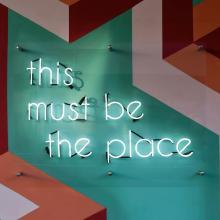“I wanted that first placement to be something that I would be like ‘okay is social work the right career for me, is this the right job for me?" - Reflection from an early career social worker on their third sector placement.
‘I learned a lot, but it wasn’t what I expected it to be’ is the message we’ve heard loudest from the students and recently workers we’ve been speaking with recently about their placement experiences.
Expectations are bound up with feelings of excitement or nervousness - of going into the new - new workplace, new people, new skills, challenges and ideas. Then there’s what tutors and peers are saying about placements - how important they are, how hard you need to work, what the people in the placement setting are like, what it’s like to be on placement as well as get on with coursework and life outside of university. All this and the sense of, well, what does this mean for me, and my future career as a social worker?
As every individual social worker brings their unique set of personal experiences perspectives to their work, we heard a diverse set of views on what students and new workers valued about their placement experiences. Our conversations mostly covered third sector placements - as the main focus of this project - but we heard a bit about statutory placements too.
In our November Voices & Visions session we heard from guest speaker Abbi Jackson, Interim CEO at Birthlink. Abbi generously shared how different practice learning opportunities have been developed in Birthlink. These have been created mindful of the skills and attributes needed for different types of work, so if it’s more suited to a first or final placement and being clear about how the work meets SiSWE (Standards in Social Work Education). Also, considering how best to support students, such as through structured supervision, peer learning and co-work with other students on placement at the same time in the organisation. Abbi’s presentation highlighted that placement work is ‘real life work’ but also that placements are the space in which students have the opportunity to practice social work in a supportive environment before they become qualified workers.
This really got us thinking about placements as places of transition for social workers, where they move from student to professional; from learning about theory to using it in practice. The post-qualifying NQSW supported year is framed as a transition from student to professional (SSSC, 2024; Kettle, date not specified) in acknowledgement of the challenge and complexity in moving from studying to full social work practice.
We’ve been thinking, where do placements fit as part of that transition? A placement is at the same time both real life social work and a safe learning environment. In this sense placements - or practice learning opportunities - occupy a unique space, straddling the world of study and the one of work. We know, from the literature and world of social work, that transitions are moments when people require scaffolding around them, to ease the move.
We’ve been reflecting on placements, and if, or how they can provide that scaffold to students as places of supported learning and a safe experience of the real world. It’s clear that they are a significant and important part of becoming a social worker, for many shaping their formative experiences of being a social worker and influencing the direction people want to take as graduates looking for their first qualified job. What makes placement scaffolding as strong as it can be?
What we’ve heard so far from students and newly qualified social workers:
What was valued in placements
- Supportive coaching and guidance from practice educator and link worker
- Feeling like PE and/ or Link Worker really understood social work and how the student’s work on placement would meet SISWE
- Feeling part of a team
- Having a clear purpose
- A range of opportunities within the placement to meet SISWE standards
- Encouragement to think creatively and critically about theory and practice
- Opportunities to meet and network with other teams or professionals
- Getting insights into different areas of practice or social work tasks
- The opportunity to support and build relationships with different people and develop skills
“I have been able to develop my skills and be person-led working with different people...I cherish that clients have been supportive to me too”. -Reflection from final year social work student.
What was difficult
- Feeling unsupported
- Not knowing much about the placement setting before arriving, or feeling unprepared
- Feeling stressed about failing or being unable to meet SiSWE within the placement
- Being limited in the social work tasks or activities that could be done within the placement setting, and not knowing how to find other ways to do these
- Having a sense that peers on other placements were accessing ‘better’ practice opportunities, particularly comparing third sector to statutory placements
“...you can find things in other ways that meet the criteria, but it was always kind of having to dig quite deep into them - you know the baking class that I set up, how did that meet the social work criteria and you know, it does. It’s not that it doesn’t. But it’s that sort of thing … when you’re really trying to establish ‘well, what is the role of a social worker, how am I able to put what I’ve learned at university so far, into practice?’ I think that was quite challenging when the role is maybe not as clear about how this relates to social work…” -Reflection from third sector worker on their social work placement in a third sector organisation.
As part of this project we are creating a resource that will support TSOs hosting student placements, to build opportunities that are meaningful and rich for students and valuable for the host organisations too. We’d love to hear your ideas for what a resource like this should include.
Email us at louise.bowen@iriss.org.uk or hannah.martin@iriss.org.uk if you want to share your thoughts or talk about the project.
Image credit: jcomp on Freepik




